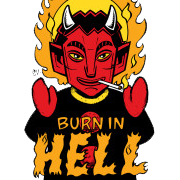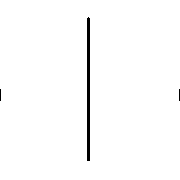|
checkplease posted:
I'm not talking about my idea of an "ideal Japan", so much as what people see as ideally Japanese. Things like, say, what you're walking back on having said. "Why weren't there any Japanese dogs in the film?" Nothing about cuteness. The point about dialogue wasn't about me pointing out that you're saying the film was good or bad, it's the interpretation that people are making that becomes fixated on what is or isn't Japanese. I don't know if memory serves, but it'd be like someone watching "The Birds" then asking where all the bald eagles are. But if anyone does that with America, I've never seen it. But Japan's own image and identity are considered, to whatever small degree, a cultural export. Even if the profitability was never practical. Anyway, specifically saying things like your friends feeling some way or another about "unexpected word choice", even as native speakers, bringing that here is a deferment to their native standing. And frankly, it's not good or bad, because that's not why I said what I did. But if we're going to talk about breeds of dogs, the end of the film showing Spots as partly mechanized makes a good visual point about what seems more likely or natural in terms of cultural integration. I'm still dwelling on it though.
|
|
|
|

|
| # ? May 2, 2024 10:30 |
|
Ok lets seriously talk dog breeds actually. American movies definitely feature more "American" dogs. Homeward bound, Air Bud, A Dog's Purpose all have gold retrievers as leads. Action movies often depict criminals with pit bulls. The corgi is most definitely associated with England. And I watched Hachi with Richard Gered in Japan, and i am sure that movie played there because it was retelling a Japanese story and was also featuring a famous Japanese dog breed that is enshrined with a statue in Shibuya. So yeah, just like the sumo, sushi, taiko drums, stylized tattoos, a dog breed can represent an aspect of Japanese culture and heritage. Just like it can for many other countries including America. A blood hound is definitely associated with southern USA. checkplease fucked around with this message at 04:16 on Apr 26, 2018 |
|
|
|
There's no disagreement about whether people will see something as Japanese in that way. Rather, I'm criticizing how that is a limiting factor. If you can ask why there aren't any Japanese dogs, consider that the film is an imagined future where things have changed, but don't even stop there. The film makes no small effort to satirize things like expectation/tradition. Things have changed, but in the film the one change spoken about in the landscape of broken industry and discarded products in the plot is a family's dog food business. Hell, why stop at dogs, what about heroes in the tradition of shounen manga/animation? The bit about 少年侍 and Atari satirizes this pretty openly. The film opens up with a story about a boy samurai who saves the dogs, and in that tradition Atari is as much a politician as the boy was a retainer in a feudal Japanese family. By the end of the story, Atari merely succeeds his uncle after becoming a politician and his uncle permits it because he sees that Atari has followed in said tradition. Atari absorbs his political opposition, kills potential political threats, allows for nepotism in administering a fine to his wealthy Uncle when a call for execution is made, etc. Playing to expectation in this way leads things to continue on as they are. There's a literal trash island that dogs can be exiled to, but the problem in the diegesis isn't the trash island, it already represents a mythical part of the landscape that characters can traverse across. Which is, again, satire because of course we'd see the trash island as magical. My reaction to reading headlines like "What Isle of Dogs gets right about Japanese culture" is hesitation or flat out rejection because images like this exist in the movie. So when there's a criticism of seeing things as essentially Japanese, the point isn't about whether you can do that, it's about what that contributes to interpreting the film. Especially when the film is mocking these expectations to no small degree. Corrosion fucked around with this message at 15:20 on Apr 26, 2018 |
|
|
|
"If you can ask why there aren't any Japanese dogs, consider that the film is an imagined future where things have changed, but don't even stop there." As a brief addition to this: Shibas appear multiple times in the film's various prints and paintings, that provide the backstory.
|
|
|
|
I just wanted a talking shiba.
|
|
|
|
Bolek posted:I just wanted a talking shiba. Seriously. I don't understand why this has been hard for people to get. Who would voice the talking Shiba? Shibas clearly have a little sass in them based on appearance/interactions.
|
|
|
|
Corrosion posted:There's no disagreement about whether people will see something as Japanese in that way. Rather, I'm criticizing how that is a limiting factor. If you can ask why there aren't any Japanese dogs, consider that the film is an imagined future where things have changed, but don't even stop there. The film makes no small effort to satirize things like expectation/tradition. Things have changed, but in the film the one change spoken about in the landscape of broken industry and discarded products in the plot is a family's dog food business. Hell, why stop at dogs, what about heroes in the tradition of shounen manga/animation? The bit about 少年侍 and Atari satirizes this pretty openly. The film opens up with a story about a boy samurai who saves the dogs, and in that tradition Atari is as much a politician as the boy was a retainer in a feudal Japanese family. By the end of the story, Atari merely succeeds his uncle after becoming a politician and his uncle permits it because he sees that Atari has followed in said tradition. Atari absorbs his political opposition, kills potential political threats, allows for nepotism in administering a fine to his wealthy Uncle when a call for execution is made, etc. Playing to expectation in this way leads things to continue on as they are. I am not sure I quite agree though that the film satirizes tradition rather celebrates it. What was satirical about that kick rear end taiko piece that opened and closed the movie? That made me just want to hear more of it. The historical art? Sure the pieces themselves were silly being filled with cats and dogs, but the art did a fine job imitating older pieces and made you appreciate that style. The sumo fight? Nothing stood out as satirical there. The sushi scene? Maybe the killing of individual pieces is weird to some, but the end results just looked delicious to me. Yeah I agree that there is satire in the general sense of an immigrant/other problem framed in the context of ancient cat dynasties vs dogs, but the individual cultural traditions seemed to be showed in a loving manner. And society seems become better as we understand it with Atari taking over for his uncle. Dog food business is restored, the one dog gets his hibachi sausages again, Spots gets babies, food, and a cyborg eye, and Chief becomes a servant of a master and is rewarded by his own girlfriend. The change from the old status quo that the dogs spoke of in their time before trash island exile is removed and their older, traditional lives are restored.
|
|
|
|
Something one review pointed out, almost in passing, has stuck with me. While the setting is "the near future," the imagery is very much that of the Showa period- that is, the postwar era ending just before the big economic boom of the late 80s. It's a transitional period, Japan is building its economy and becoming a fully industrialized nation, and with that came a lot of social change. The dogs being exiled is sort of a symbol of what's being given up, they don't fit in this heavily urbanized environment. Of course it's also a period- 50s through the 70s- that Wes Anderson likes to reference a lot in all his films, but it fits here. (Also part of it reminds me of a bit in the making-of featurette for Spirited Away, where Miyazaki is trying to explain how Sen trying to put something in the dragon's mouth should work, and none of the animators ever had a dog so they have to go to a vet's office to see someone giving a dog a pill. I don't have anything to say about this, it's just something I noticed.)
|
|
|
|
checkplease posted:I am not sure I quite agree though that the film satirizes tradition rather celebrates it. What was satirical about that kick rear end taiko piece that opened and closed the movie? That made me just want to hear more of it. The historical art? Sure the pieces themselves were silly being filled with cats and dogs, but the art did a fine job imitating older pieces and made you appreciate that style. The sumo fight? Nothing stood out as satirical there. The sushi scene? Maybe the killing of individual pieces is weird to some, but the end results just looked delicious to me. Yeah I agree that there is satire in the general sense of an immigrant/other problem framed in the context of ancient cat dynasties vs dogs, but the individual cultural traditions seemed to be showed in a loving manner. The conclusions of the content of the film, mainly. It's not the superficial decorum, because I like the drum beats too, it's what the characters express through the formal stuff that you're referencing that is the satire. That's a beautiful picture of art that you see at the beginning, and you want to see more of it... but it's to convey to you what Atari will inevitably do. Which is live up to, not change or surpass tradition. Atari clearly lessens his Uncle's punishment to a simple fine, the [Wasabi] Mustard Gas attack still horrifically kills Atari's opposition while Major Domo goes unpunished and the men who serve him are brutally murdered instead as proxies. The satire of this film doesn't wink at you and tell you it's okay to laugh at the Japanese, rather the film creates expresses a narrative that allows Japan to have some sort of dignity as a subject rather than as weird and only weird. That whole orientalist bullshit. Maxwell Lord posted:Something one review pointed out, almost in passing, has stuck with me. While the setting is "the near future," the imagery is very much that of the Showa period- that is, the postwar era ending just before the big economic boom of the late 80s. It's a transitional period, Japan is building its economy and becoming a fully industrialized nation, and with that came a lot of social change. The dogs being exiled is sort of a symbol of what's being given up, they don't fit in this heavily urbanized environment. Right, but it's important to remember that this extends all the way to the images of the nuclear reactors that bring us up to post 2000s with Fukushima Daiichi. The montage of images also represents the literalized cultural landscape, so these eras have eventually piled atop each other. It represents the way characters are acting symbolically, maintaining what presumably allowed those things to happen.
|
|
|
|
checkplease posted:Seriously. I don't understand why this has been hard for people to get. Who would voice the talking Shiba? Shibas clearly have a little sass in them based on appearance/interactions. Are there sassy talking characters in Wes Anderson movies? I guess maybe Hackman in Tenenbaums, kinda.
|
|
|
|
The Tracy character is confusing. On the one hand, she bosses and pushes other characters around, wears the American flag, refrains from speaking Japanese even though she apparently understands it and is generally an Ugly American. On the other hand, she's at the center of the rebellion and becomes part of Atari's innercircle at the end. I feel like Anderson was trying to saying something there but I really don't know what exactly.
|
|
|
|
live with fruit posted:The Tracy character is confusing. On the one hand, she bosses and pushes other characters around, wears the American flag, refrains from speaking Japanese even though she apparently understands it and is generally an Ugly American. On the other hand, she's at the center of the rebellion and becomes part of Atari's innercircle at the end. I feel like Anderson was trying to saying something there but I really don't know what exactly. She's an outsider whose reactions are meant to mirror and amplify those of the American audience (quite a few of whom can be seen just itt griping about how the rest of the human cast is making ching chong wing wong noises at them), and as an outsider better positioned to recognize the faults insiders are willing to simply shrug off as just how things are, but she's not some Dances with Wolves savior who's gonna show up and solve the plot by immediately becoming better at navigating Japanese society than the Japanese cast, and while she's an important contributor to effecting social change it's ultimately as an equal. A Wizard of Goatse fucked around with this message at 17:48 on May 17, 2018 |
|
|
|
I saw this today and I have a few thoughts about it. I'm not entirely sure how I feel. It sure was pretty to look at, but the rest of it seemed to pull in a couple different direction. (1) There's something very interesting going on with the dogs as racialized labour that I don't think the movie completely sticks. The dogs weren't just human companions, but they had jobs. They did work. And one of the things the humans are doing is replacing the dogs with mechagodzilla dogs (mechadogzillas?). The dogs are then literally discarded — sent to the garbage dump. In pre-movie Megasaki, dogs were largely valued for their ability to provide value for the humans, and they have been surpassed. (2) In light of (1), it's easy to think of the story in terms of the American southern border. The dogs represent the Mexicans and Guatemalans who crossed the border to find work. The problems invoked by the mayor of Megasaki — disease, crime, overbreeding — are the same that Americans invoke about immigration. It's maybe a bit of a stretch, but you do have the dogs crossing the "river" to get to where the aboriginal dogs are. In Spots' flashback, the lead aboriginal dog has a face that recalls the 'face tattoo' image of a Mexican gangster. This gets a bit dodgy in light of the dogs being a naturally servile race, who are 'meant to' be subordinate to humans. You can smooth this over a bit if you imagine the movie's perspective to be a bit of a doddery liberalism. (3) I think the movie does a reasonably good job of imagining fascism. It's not just some sui generis evil, but a result of the intersection of capitalism, mythologized bigotries, and the desire to maintain power. But in light of that, I think the movie kinda stumbles with how the fascism is opposed. While we do have the hacker doing real work (including the slightly glossed killing of all the would-be executioners), fascism is ultimately defeated by a West Wing speech and cheap sentimentality. The heroes say "how dare you" and "have you no shame" and fascism is over. This fits with the doddery liberalism. I dunno what the final verdict on all that would be. Maybe something like "the way we like to think of dogs gets in the way of an interesting allegory." Sorta want to watch it back to back with Elysium and see what insights come out.
|
|
|
|

|
| # ? May 2, 2024 10:30 |
|
My favourite part is how the aggressive black character becomes friendly once it turns out he’s actually white
|
|
|














